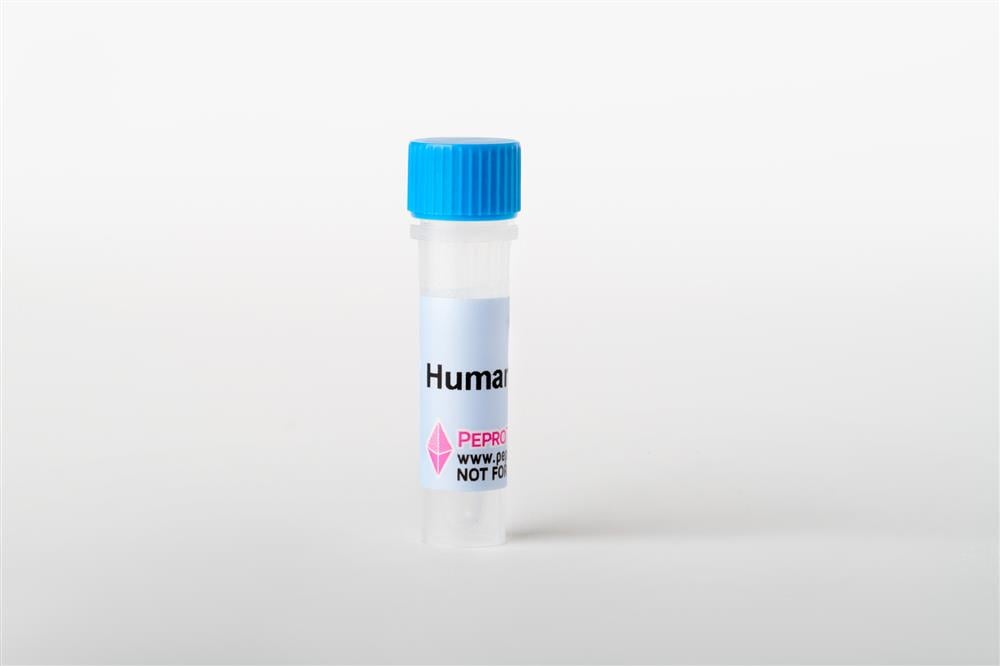140-06
Recombinant Human PAI-2
PeproTech
DESCRIPTION
PAI-2 is an inhibitory serpin expressed mainly in keratinocytes, activated monocytes, and placental trophoblasts. It exists predominantly as a 47 kDa, nonglycosylated, intracellular protein, which can be induced to be secreted as 60 kDa glycoprotein. The glycosylated and unglycosylated forms of PAI-2 are equally effective as inhibitors of urokinase-type plasminogen activator (uPA), the only established physiological target of this serpin. PAI-2 has a unique ability to form dormant polymers spontaneously and reversibly under physiological conditions. The physiological relevance of this property, which is neither a consequence of any mutation in the PAI-2 gene nor associated with any known disorder, is still unclear. However, it appears that the formation of intracellular, dormant polymers may be important for the controlled release of the inhibitor from PAI-2 producing cells. Plasma levels of PAI-2 are usually low or undetectable, except during pregnancy and in some forms of monocytic leukemia. Secretion of PAI-2 from the placenta normally occurs during the third trimester of pregnancy, and accounts for the dramatic increase in PAI-2 levels (up to 250 ng/ml), which are maintained at these levels until postpartum, and then rapidly decline. In addition to its vital role in protecting the placenta from degradation by uPA and/or uPA-activated proteases, PAI-2 has been shown to be essential for the prevention of metastatic spread of neck, lung and breast cancers. The beneficial effect of PAI-2 seen in these studies is presumed to stem from its ability to inhibit uPA-dependent cell dissemination. PAI-2 has also been reported to inhibit keratinocyte proliferation, and to participate in the innate immune response during viral infection. Recombinant Human PAI-2 is a 46.5 kDa, nonglycosylated protein of 415 residues.
DETAILS
- Gene Id: 5055
- Uniprot: P05120
- Activity: Determined by its inhibitory effect against single chain tPA induced cleavage of a chromogenic substrate in Imidazole Buffer at 37°C. Half maximal inhibition against 1.0 ug/ml of single chain tPA was obtained at a concentration of 1.0 ug/ml
- Category: RUO Cytokines
- Subcategory: Other Proteins
- Research Areas: Cancer, Diabetes/Weight Regulation
- Alternative Names: Plasminogen Activator Inhibitor-2, Monocyte Arg-serpin, Serpin B2, Urokinase Inhibitor
- Species of Origin: Human
- Expression System Source: E.coli
Equivalent Items
| ... Loading
